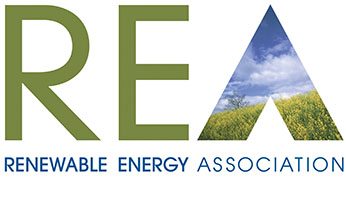

Energy
Green Gas Could Reduce UK LNG Imports
Green Gas could produce equivalent of over one quarter of UK’s LNG imports
- New report released by UK renewable energy trade body details the potential and existing production of biomethane (green gas) in the UK
- The UK has the potential to produce the equivalent of 45 Liquefied Natural Gas (LNG) tankers’ worth of biomethane yearly by 2035 (40TWh/year)
- Mandatory collection of food waste could be a pragmatic, cost-effective policy to support biomethane growth
A new report by the REA’s biogas sector group outlines the potential for Britain to produce the equivalent of more than 45 LNG tankers’ worth of renewable natural gas (in the form of biomethane) per year by 2035.
In 2015 the UK’s biomethane industry was the fastest growing in the world, and by the end of 2016 will produce the equivalent of four LNG tankers worth of gas yearly, which it injects directly into the UK’s natural gas grid. Current levels of biomethane production support the heating and cooking needs of up to 100,000 homes.
Biomethane is a renewable gas identical in chemical composition to natural gas, the fossil fuel. There already exists an extensive natural gas transportation and distribution grid in the UK.
Fifty biomethane projects were completed by the end of 2015, with an additional fifteen expected to be completed in 2016. By the end of 2016 the UK will be domestically producing more green gas than LNG imported at the Dragon (Milford Haven) terminal in 2014.
If the industry’s growth to 2035 reaches expectations, the UK’s production of biomethane will be 2.4 times greater than the volume of LNG that was imported by both the Dragon (Milford Haven) and Isle of Grain terminals in 2014. Such production could result in the UK being able to reduce its LNG imports by over a quarter (from 2014 levels).
The report details the existing size and scope of the industry in the UK, the use of green gas certificates, carbon savings, and the market potential. It concludes with three case studies of best practice use, including the case of cheese producers Wyke Farms.
The report has been timed to coincide with UK Biomethane Day, where over 300 individuals from industry, government, and academia have gathered in Birmingham to plan for the industry’s future.
Dr. Kiara Zennaro, Head of UK Biogas, a sector group of the Renewable Energy Association, said:
“While the government for years has touted the ‘fracking revolution,’ biomethane is actually getting on with the job of increasing our domestic gas production whilst decarbonising supply.
Biomethane is also about the pragmatic use of our existing resources- the gas is produced by digesting food and other organic wastes. By producing this gas we are improving our sustainability and policies such as UK-wide separate food waste collections would be a cost-effective means of boosting production.”


 Environment12 months ago
Environment12 months agoAre Polymer Banknotes: an Eco-Friendly Trend or a Groundswell?

 Features11 months ago
Features11 months agoEco-Friendly Cryptocurrencies: Sustainable Investment Choices

 Features12 months ago
Features12 months agoEco-Friendly Crypto Traders Must Find the Right Exchange

 Energy11 months ago
Energy11 months agoThe Growing Role of Solar Panels in Ireland’s Energy Future



























